For many years graffiti was seen as a scourge on urban landscapes. It was considered the work of thugs and vandals and had to be eliminated at all costs. City managers would send out their staffs in droves to paint over, scrub off, and do whatever they could to remove graffiti. In the last few years though, many metro areas have realized that graffiti can be managed, and started using it to beautify urban settings. The city of Toronto recently embraced street art and graffiti and in doing so, created some beautiful outdoor “alleyway-galleries” where this art can be appreciated. Here are some of my favorite pictures from a recent Toronto graffiti tour I took.

Born form the teenage angst of inner-city youth who wanted to see themselves as larger than life, graffiti has quickly developed into an art form with a rather complex set of rules within an almost self-contained community. Each artist develops their own “tag” that they then repeat as often as possible in more unique and elaborate ways. It’s the only modern art form that was invented by teenagers and young adults. The lifespan of an artist is rather short with most “careers” ending once they graduate high school and enter college or the workforce. When you take all that into consideration, it’s fascinating what can be done with basically one primary tool: a can of spray paint.
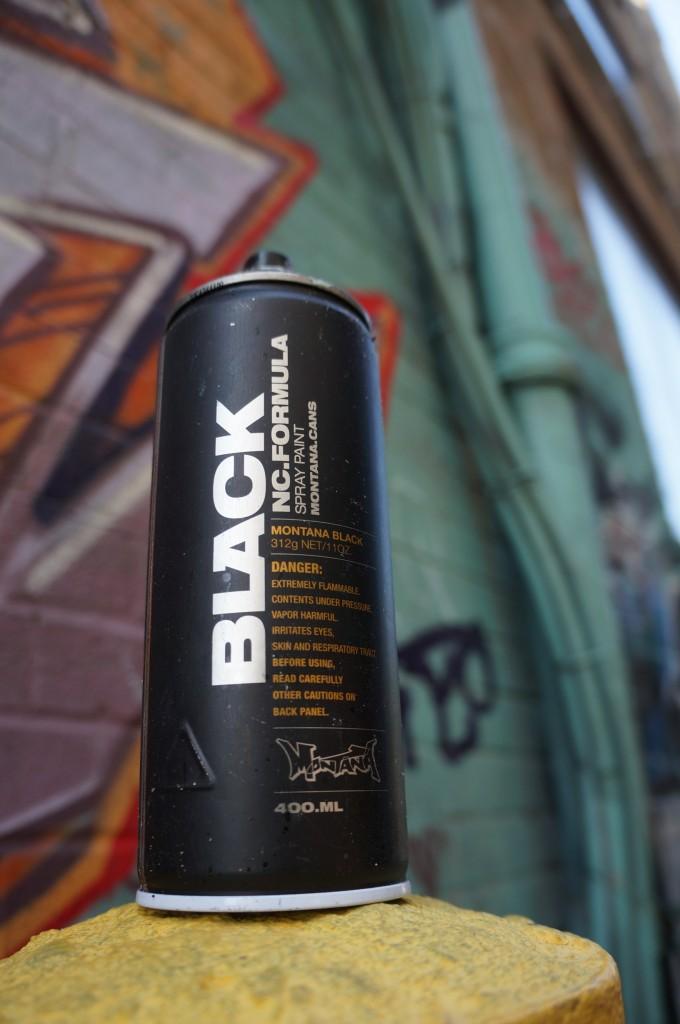
Our Graffiti tour began in Toronto’s former garment district along Queen St. West and Sepulveda Ave. Now home to bars, galleries, and hipsters, it was a natural place for this art form to get a firm foothold. We signed up with the TourGuys in Toronto and our guide, Jim, gave us a fantastic tour.
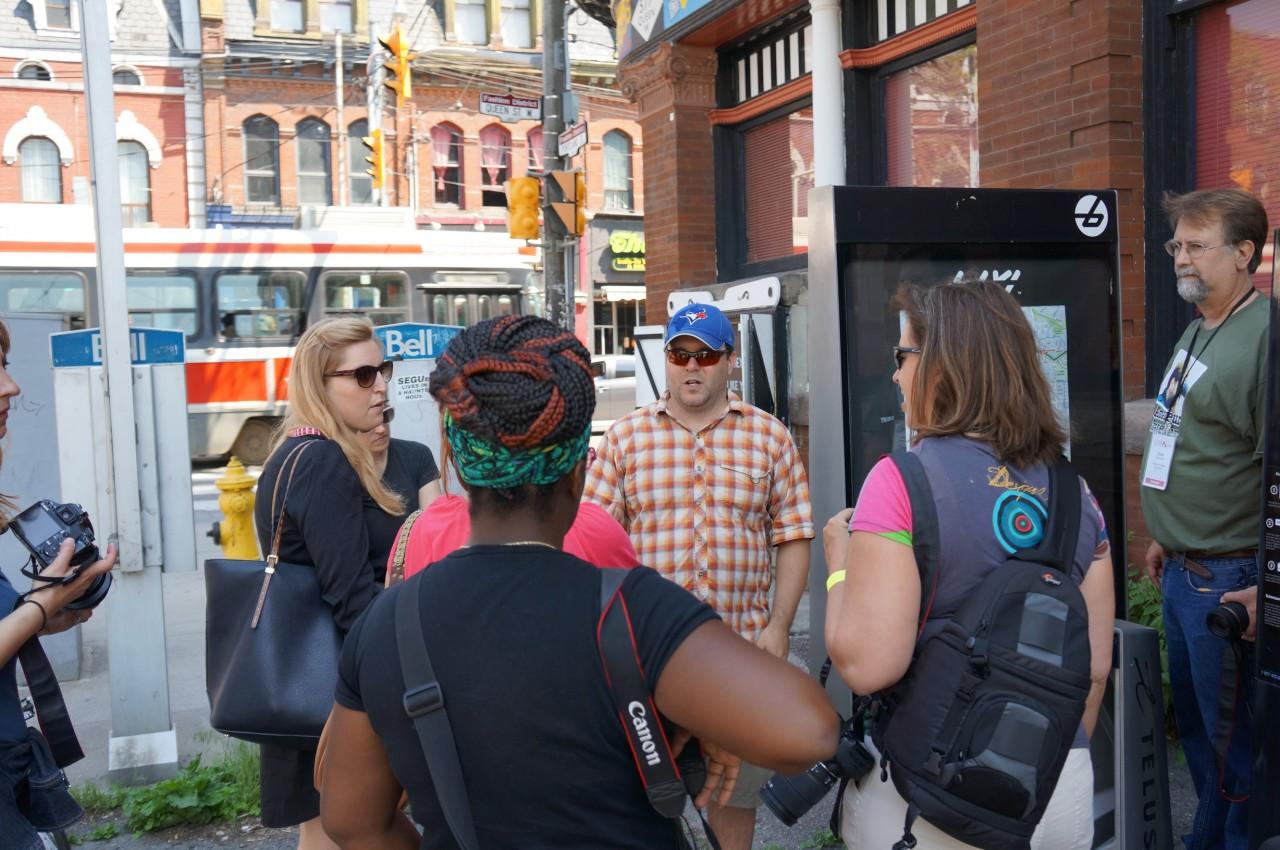
The most rudimentary graffiti features tall oversized bubbly letters called a throw-up.
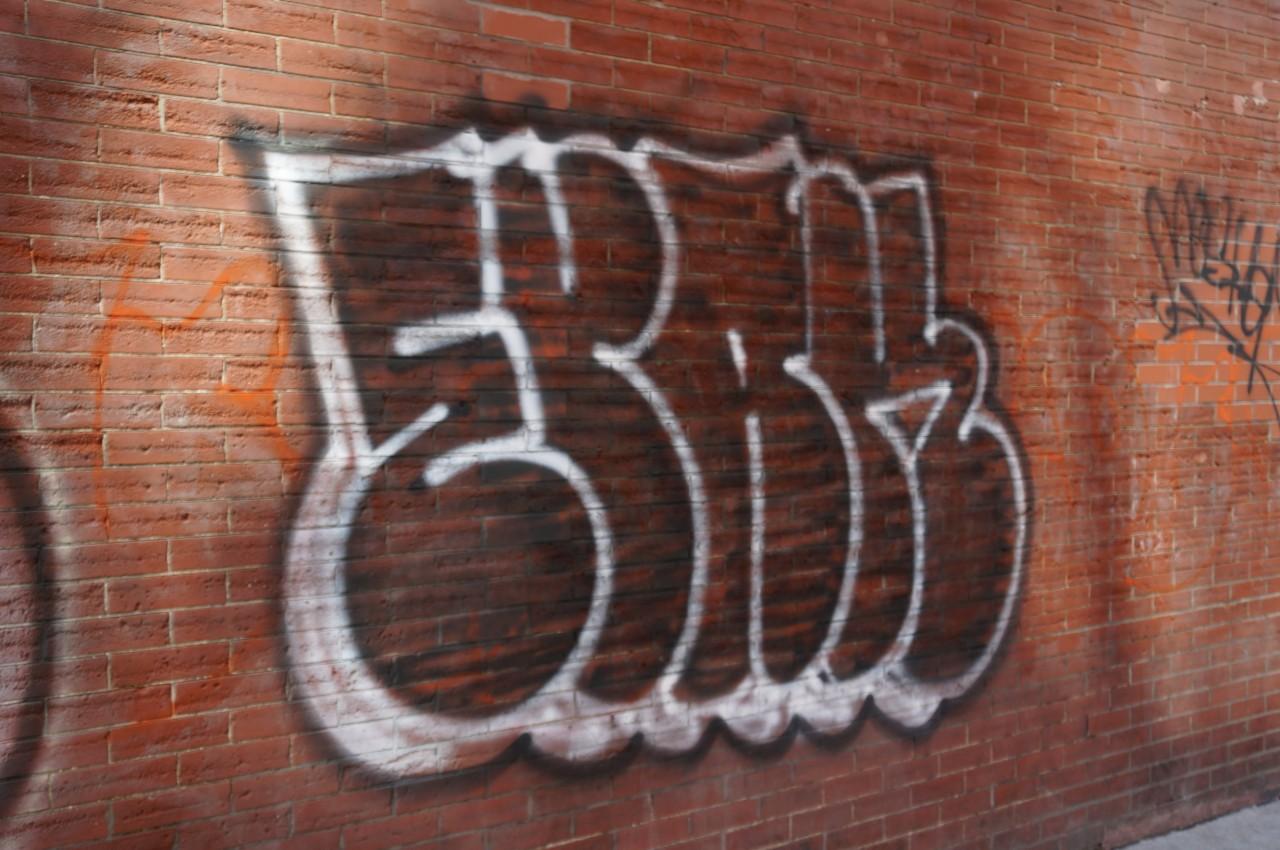
Originally the goal of most “taggers” was to have their tag in as many places as possible and in highly visible locations. Subways and train cars became very popular targets because of their large size and because they moved all over the city. Many times one spot will become covered with tags, one over the other. While it may seem random, each artist knows that they can only cover a name with a better piece. Also, if you cover another artists piece you must fully cover it unless you intend to insult the previous artist.

Over time though, the lettering has become extremely stylized and exceedingly difficult to read. As an artist becomes more known he can become more creative with his art because his style becomes a signature as well.




Because some of these pieces are so elaborate, more than one person often completes them. A team of artists will come out and finish a piece in just a few hours. The primary artist will draw out the outlines and decide the colors while the rest of the crew fills in the large blocks.
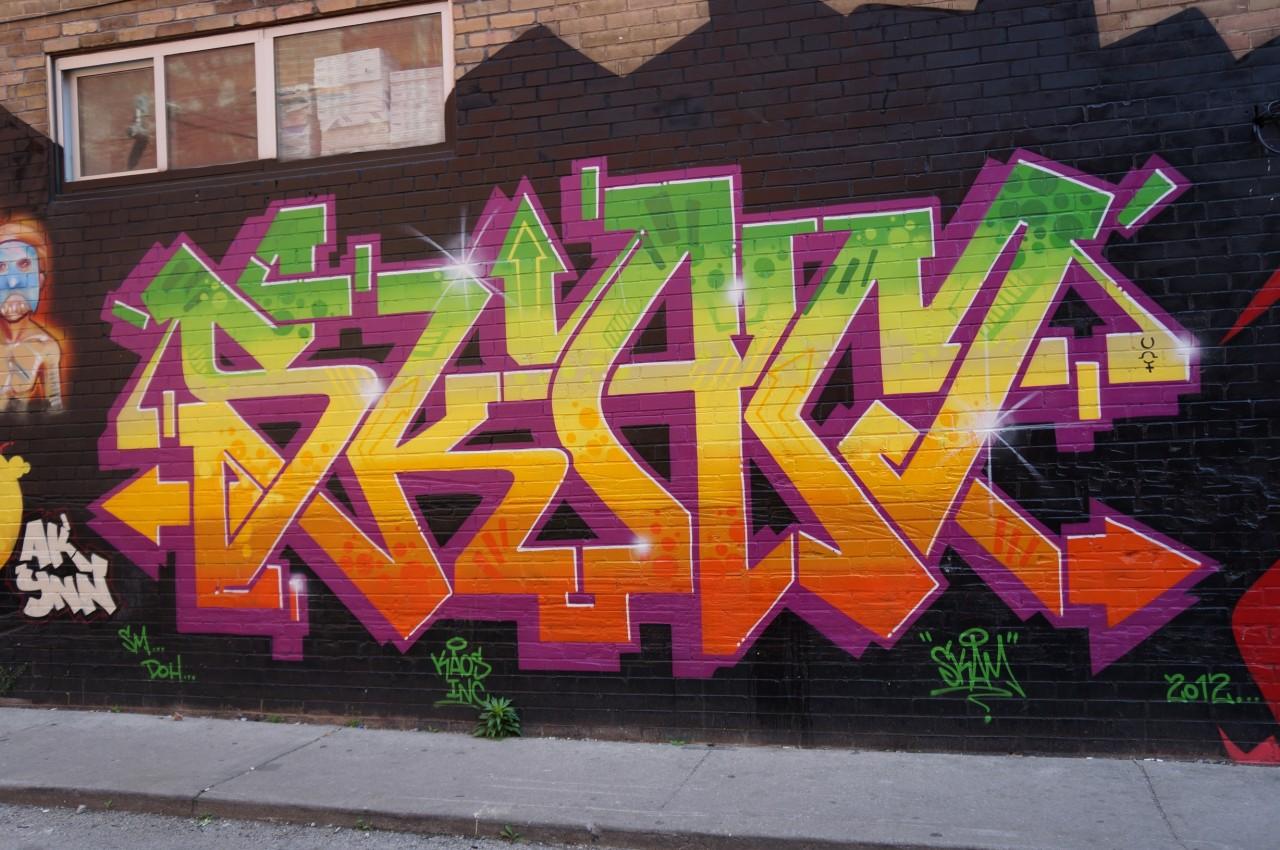
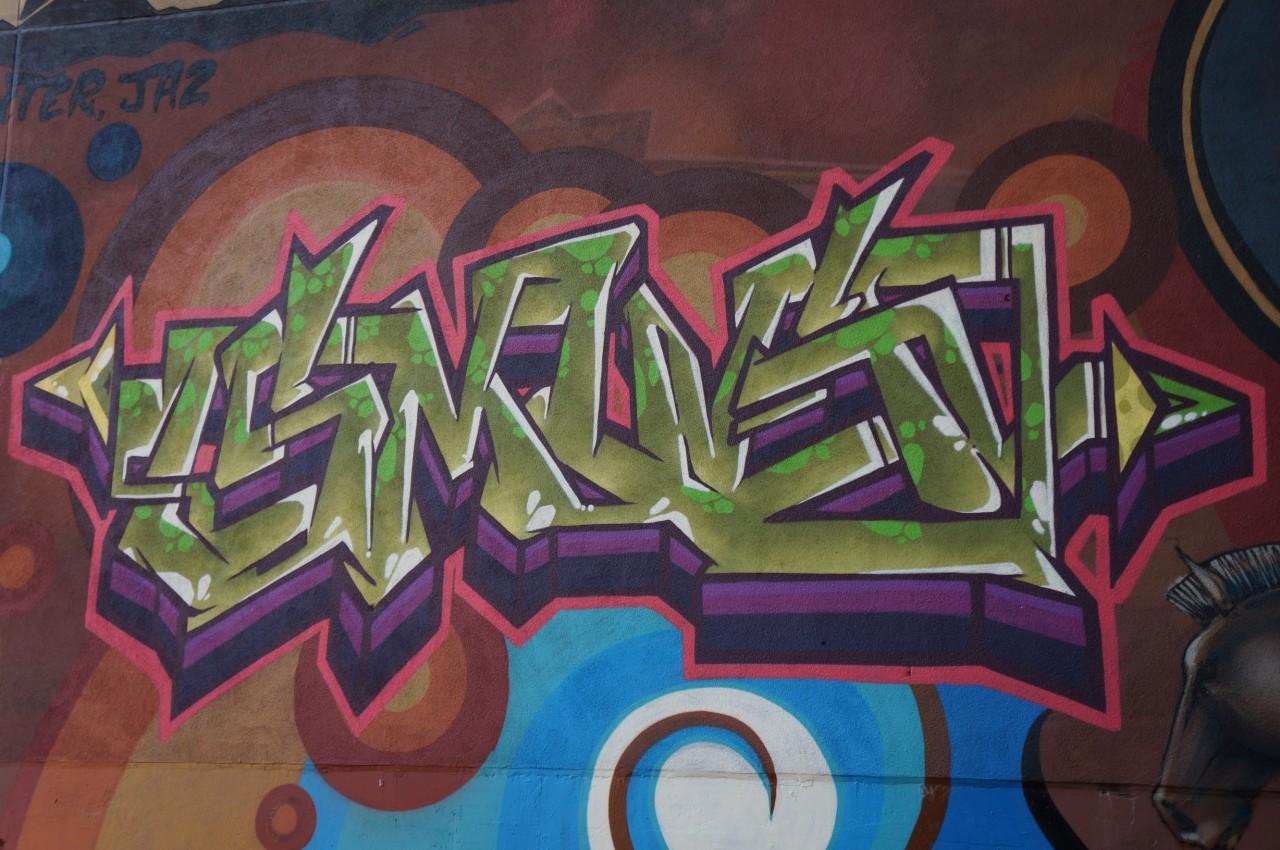


The field is highly competitive, so each piece only lasts a small time before it’s covered up with a bigger and better piece.
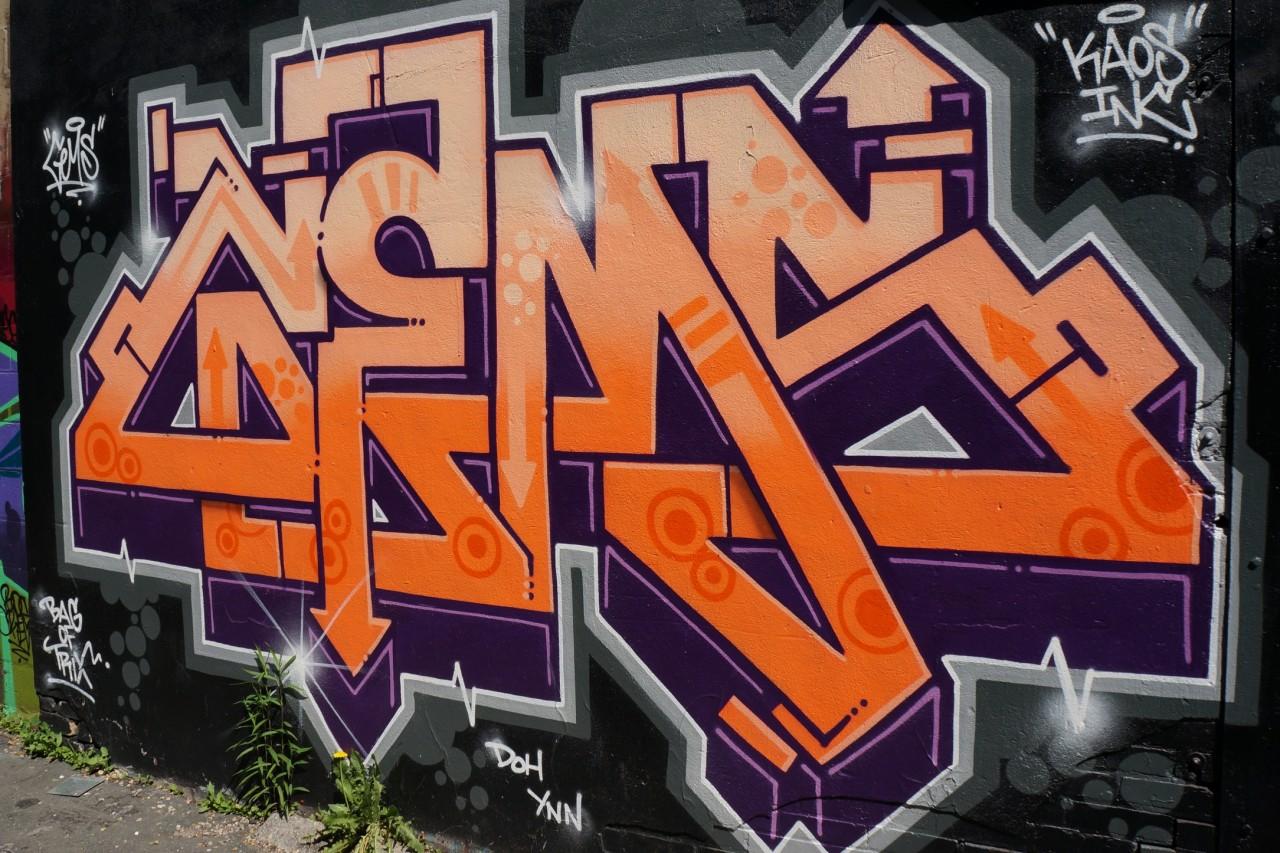


Occasionally, artists will team up on a whole wall and make one piece that’s unified and carries a central theme. This is called a “production” piece and can really produce spectacular results when quite a few like-minded artists get together.

As you can see, the whole wall has been tagged with each section using similar colors to tie in the work. A closer look reveals each artists tag.


At one time there was a festival in Toronto called Styles in Progress. This pulled together many artists from different cities to create large productions.

